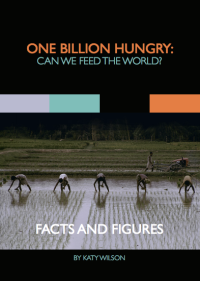This week’s summary on the news stories, reports and blogs that have grabbed our attention. We welcome your thoughts and comments on these articles.
Rising fossil fuel energy costs spell trouble for global food security, Oregon State University
Horizon 2020 – first projects funded involving African researchers, PAEPARD
Sustainable Agriculture Research Falling Further Behind, National Sustainable Agriculture Coalition
OECD – FAO expect stronger production, lower prices over coming decade, FAO
The President of the United States of America meets Sir David, Thinking Country
New Ethiopian ‘livestock master plan’ aims to take 14 million out of poverty, ILRI
Farmgate prices may stay low for 10 more years, says report, Farmers Weekly
Web-based policy tool on small-scale farmer innovation, PAEPARD
Producer Movements in Integrated Landscape Management, Landscapes for People, Food and Nature
Benchmarking the sustainability performance of the Brazilian non-GM and GM soybean meal chains: An indicator-based approach, Gaitán-Cremaschi et al, Food Policy [Read more…]









